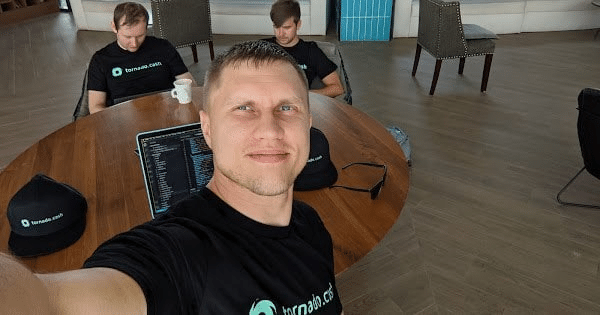The trial of Roman Storm, co-founder of the controversial cryptocurrency mixer Tornado Cash, has been postponed. Judge Katherine Polk Failla granted a reprieve due to the case’s complexity. Storm’s defense highlighted novel legal issues and millions of pages of Russian documents needing translation.
“The government has produced voluminous discovery in this case on a rolling basis, which the defense is still analyzing,” the court filing stated.
The prosecution claimed the defense exaggerated, arguing they had ample time to review the documents. The court, however, sided with Storm, moving the trial from September 23 to December 2. The judge needs more time to consider the legal issues raised by the defense.
Roman Storm was arrested in August 2023, a year after U.S. authorities sanctioned Tornado Cash. He faces charges of criminal conspiracy and money laundering over $7 billion. Two other developers, Alexey Pertsev and Roman Semenov, were also arrested. Pertsev was found guilty of laundering $1.2 billion and sentenced to five years in prison. He appealed the verdict, but his request for bail was denied.
The developers have founded the JusticeDAO Foundation to support their legal battle. They have received backing from Coinbase representatives and Edward Snowden.
In August 2022, the U.S. Treasury sanctioned Tornado Cash. The Office of Foreign Assets Control (OFAC) added the protocol and its wallet addresses to the sanctions list. U.S. residents and citizens are prohibited from using the service. Authorities allege Tornado Cash laundered over $7 billion in illicit cryptocurrency proceeds since 2019, including $455 million linked to the North Korean hacker group Lazarus.
Tornado Cash was also used to launder over $96 million from the June 2022 Harmony network heist and at least $7.8 million from the Nomad cross-chain protocol hack. In response, Coinbase funded a lawsuit against the Treasury Department, its head Janet Yellen, and OFAC Director Andrea Gacki, demanding the sanctions be lifted. Coinbase CEO Brian Armstrong stated that while the exchange opposes illegal activities, the department exceeded its authority by restricting the entire technology.
During the hearing, the judge questioned whether the developers of a decentralised service could be held accountable for its use. The defense argued that Tornado Cash was not created with criminal intent and that the developers had no control over user funds. The judge asked prosecutors what the co-founders should have done upon discovering North Korean hackers were using their service. She also questioned whether a service is liable if one of its many users is a criminal.
The central issue is whether a tool or service is responsible for money laundering. Due to Tornado Cash’s decentralised nature, the defense claims the developers cannot prevent illegal use. The Pertsev case was a wake-up call, raising the question: Will developers of any cryptocurrency service be held responsible for illegal activities?
American authorities’ statements imply that if criminals use a developer’s code, the developer becomes a criminal. This assumption persists regardless of the developer’s ability to stop the criminals. The Tornado Cash founders implemented regulatory tools, allowing users to disclose funds’ sources and prevent deposits from criminal accounts. Despite these measures, the judge’s decision to sentence Pertsev remained unchanged.
This case highlights the ongoing debate about the responsibility of developers in the cryptocurrency space. The outcome could set a precedent for future cases, impacting how decentralised services are regulated and used.






